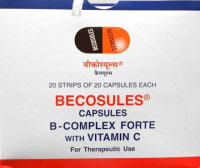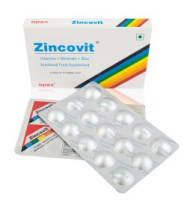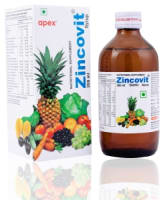USED FOR:
Execessive skin dryness
Acne
Nutritional deficiencies
COMPOSITION:
Allantoin (0.5% w/w)
Clindamycin Topical (1% w/w)
Niacinamide (4% w/w)
Therapeutic Uses:
derma
vitamins minerals nutrients

No interaction found

WEIGH RISKS VS BENEFITS
Paknet-C Gel may be unsafe to use during pregnancy.Animal studies have shown adverse effects on the foetus, however, there are limited human studies. The benefits from use in pregnant women may be acceptable despite the risk. Please consult your doctor.

Paknet-C Gel is probably safe to use during lactation. Limited human data suggests that the drug does not represent a significant risk to the baby.

SAFE
Paknet-C Gel does not usually affect your ability to drive.

Paknet-C Gel is probably safe to use in patients with kidney disease. Limited data available suggests that dose adjustment of Paknet-C Gel may not be needed in these patients. Please consult your doctor.

Paknet-C Gel is probably safe to use in patients with liver disease. Limited data available suggests that dose adjustment of Paknet-C Gel may not be needed in these patients. Please consult your doctor.
Uses of Allantoin
Allantoin is used in the treatment of execessive skin dryness.
How to use Allantoin
Use this medicine in the dose and duration as advised by your doctor. Check the label for directions before use. Apply it on the affected area and allow it to stay before spitting or rinsing.
How Paknet-C Gel works
Allantoin is a skin protectant that works like a moisturizer to soften skin. It forms an oily layer on the skin and keeps the water inside and thus prevents skin from drying out..
Common Skin rash.
Expert advice for Allantoin
Allantoin should not be used for more than 7 days. If symptoms persist contact your doctor immediately.
Avoid contact with eyes and other mucous membrane.
Stop taking allantoin if you develop severe allergic reactions.
Do not apply this medication on deep wounds or cuts or any infection on the skin.
Do not apply allantoin topical if it worsens any existing acne problems.
Q. Is Allantoin safe and natural?
Allantoin is chemically synthesized for making the ointment. It is safe when used for the condition at the dose for the duration prescribed by the doctor
Q. Is allantoin same as lanolin/ formaldehyde releaser/ aluminium?
Allantoin is not the same as lanolin/ formaldehyde releaser/ aluminium
Q. Does Allantoin clog pores/ lighten skin/ cause acne/ cause cancer?
Allantoin may clog pores and may lighten skin. It is not known to cause acne or cure cancer. Please inform your doctor if you observe any side effects while using this ointment.
Uses of Clindamycin Topical
Clindamycin Topical is used in the treatment of acne.
How to use Clindamycin Topical
Use this medicine in the dose and duration as advised by your doctor. Check the label for directions before use. Apply it on the affected area and allow it to stay before spitting or rinsing.
How Paknet-C Gel works
Clindamycin Topical is an antibiotic. It stops bacterial growth by inhibiting synthesis of essential proteins, which are required by bacteria to carry out vital functions.
Expert advice for Clindamycin Topical
Discontinue use of topical clindamycin and contact your doctor immediately, if you experience diarrhea or bloody diarrhea.
Avoid vaginal intercourse or use of other intravaginal products such as tampons or douches while using clindamycin cream.
Clindamycin cream contains mineral oil that may weaken latex products (condoms and diaphragms) and may not provide adequate birth control. Therefore, do not use these products within 72 hours of using clindamycin cream.
Avoid direct contact of cream with your eyes. In case of direct contact, wash your eyes with water and seek immediate medical attention.
Tell your doctor if you are or planning to become pregnant or are breastfeeding.
Do not use if you are allergic to clindamycin, lincomycin or any of its ingredients.
Do not use if you have Crohn’s disease (a chronic inflammatory disease of the intestines), antibiotic-associated colitis (colon inflammation).
Q. Can I use clindamycin with a penicillin allergy?
Clindamycin is considered safe for use in patients with a penicillin allergy
Q. Does clindamycin treat acne scars?
Clindamycin can prevent the formation of new scars by preventing formation of new acne, but will not be useful for the scars already formed
Q. Can clindamycin cream cause thrush?
Yes. Use of clindamycin cream may cause thrush (a type of fungal or yeast infection) in rare cases.
Uses of Niacinamide
Niacinamide is used in the treatment of nutritional deficiencies.
How to use Niacinamide
Use this medicine in the dose and duration as advised by your doctor. Check the label for directions before use. Apply it on the affected area and allow it to stay before spitting or rinsing.
How Paknet-C Gel works
Niacinamide provides essential nutrients.
Common Nausea, Portal vein fibrosis, Blockade of portal blood vessels, Dry hair, Headache, Heartburn, Hepatobiliary disorder, Liver toxicity, Sore throat, Stiffness of face, Disorientation, Fatigue.


 Paknet-C Gel
Paknet-C Gel  Bookmark
Bookmark





















